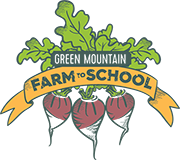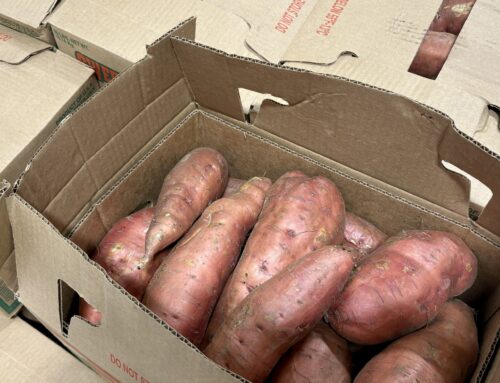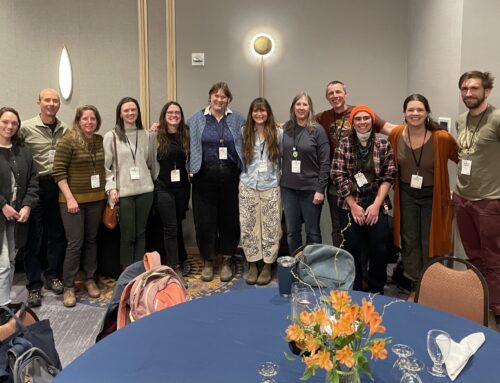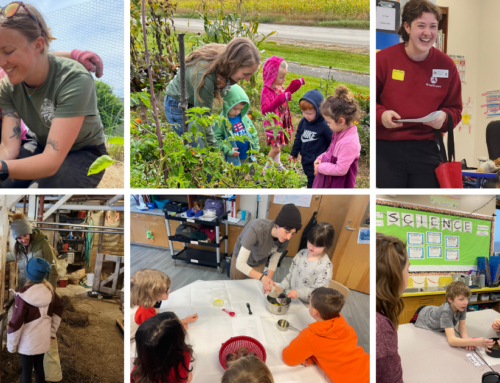By Rose Lovett
Blue Ledge Farm is a first generation, family owned goat dairy and cheese-making operation on 150 acres in Sallsbury, VT. For 23 years, Greg Bernhardt and Hannah Sessions have run and developed the farm together. The Blue Ledge mission is to create a high quality product built on the cornerstones of respect for consumers, land and animals as well as our local community.
Blue Ledge Farm joined Green Mountain Farm Direct as a partner in 2020. It was a difficult time period with restaurants closing during the pandemic, and Greg and Hannah were looking for new avenues to sell their cheese. The farm’s goal is to sell as much cheese within Vermont as possible, so working with Farm Direct was a natural fit to help achieve that goal.
Blue Ledge got its start in 2000, after Greg and Hannah bought an old dairy farm. The two had met while studying abroad in Europe and dreamed of creating a farm and building a life together when they got back home. Not long after, at the age of 23, the couple came to Salisbury, Vermont to view a farm for sale. Hannah says, “As soon as we saw the farm we noticed this beautiful blue-colored ribbon of rock ledge which we knew would be perfect for goats, so that’s where we got the name Blue Ledge Farm. The previous owners of the farm had milked 60 cows here for 60 years but it hadn’t had animals on it in some time. So the farm was originally 120 acres and 50 of it is in conserved flatland. The other ½ is a nice mix of open hayland and pasture and 20 acres of woodland, which is now our silvopasture. We knew we wanted to milk goats and make cheese. We milked 11 goats the first year and got up to milking 38. That first year we shipped milk and made about 6,000 pounds of cheese, while we held down off-farm jobs. Our initial cheese plant was the southern half of the original milk house- so very small scale. I think we were the smallest plant in the state of VT in 2002. We slowly built our business and doubled production every year for the first few years and now we’re holding steady.
We now milk 128 goats. We purchase cow’s milk from a local farm and we make cow’s cheese year round as well. Both farmstead cheeses because they are from one specific herd. We make about 60,000 pounds of cheese per year and don’t have a lot of plans to grow. We are happy with the size we are. We’ve both been full-time since 2007 and now have 10 part-time employees. We are still very much involved in the manufacturing and day to day operations of the farm. We take afternoons off regularly which we enjoy. And we travel to see our kids (now in college).”
When Hannah reflects on what she values most about her work, she says, “I enjoy that every day is different and I really enjoy creating food in a way that is as least exploitative as possible. By nature agriculture is a bit exploitative. We manipulate conditions to get the goal that we want. Even as I’m weeding my garden right now I’m optimizing the conditions for growth. I think about working in partnership with our animals as much as possible. We give them a good life and they give us milk. We are an Animal Welfare Approved farm since 2015. It’s a nationwide certification and it’s through an organization called A Greener World and it’s many, many pages of requirements, all of which make sense to me. It covers the management of your animals, space in the barn, outside access, things like that. I enjoy the opportunity to live out my values and make food for people and I really love watching things grow. Farming is a struggle but it’s also getting to witness miracles every day.”
The partnership with Green Mountain Farm Direct has made a difference to the farm, helping them through the pandemic years and now beyond. “Farm Direct fills a really important niche, helping smaller accounts access local food,” Hannah says, “It’s actually quite expensive to distribute products within the state of VT because none of us are easy to get to. It’s cheaper and easier to ship cheese to Boston than it is to my neighbor. So the food hubs create an excellent opportunity to sell products throughout the state.
You have to wear so many hats being a farmstead cheese producer. We have to manage a dairy farm and a cheese facility and it’s really nice to work with Farm Direct and other food hubs because they handle the sales and the billing part for me. So instead of maintaining dozens of smaller accounts (and the sales, invoicing and distribution for all of them) we can just work with Farm Direct, or another Food Hub, get our product to them, and they take it from there. It’s a hugely valuable service. I just read an article today about a survey done by The American Cheese Society last year of all of its members nationwide. Prior to 2021, 65% of ACS members were farmstead cheese producers, meaning they made cheese from their own milk or form one single herd of animals. In 2021 that percentage was down to 55%. It’s really concerning that fewer folks are making it work to have a dairy and make cheese. I think it would really be a shame if we didn’t have any farmstead cheese makers so whatever we can do to enable the sustainability of farmstead cheese producers the better! And one thing we can do is help them market their product and manage the invoicing and all of that. Simplify their life.”
Check out all Blue Ledge Farm’s cheeses on their website. During the summer months, the fresh chevre is a popular choice as the lightness and tartness of it just hits the spot!
You can find Blue Ledge’s products at the following locations via Farm Direct:
Plainfield Coop
Sweet Clover Market
Craftsbury General Store
The Roots Farm Market
Also Seasonally Available at:
Adam’s Berry Farm
Wilson Herb Farm
Sweet Roots Farm
Chandler Pond Farm
Knoll Farm





